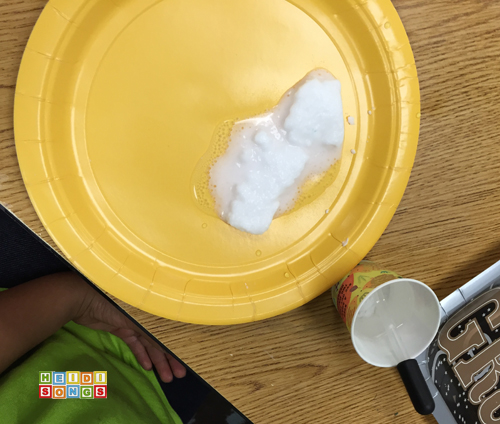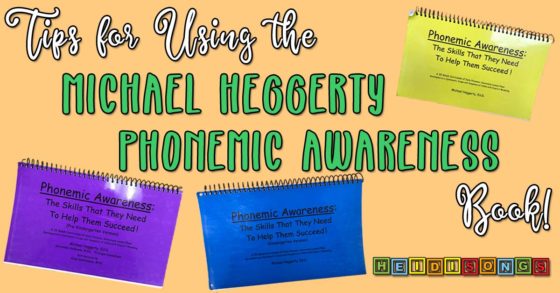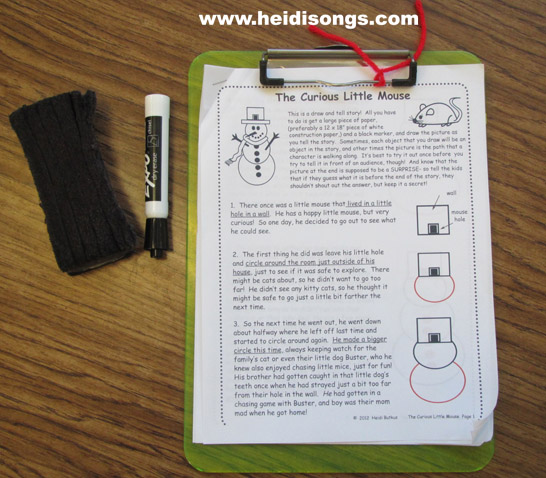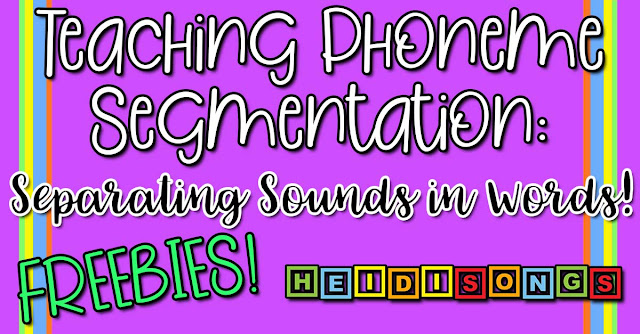Can’t Do Halloween? Try Mad Scientist Day!
Have you heard the news? We've Moved to HeidiSongs.tv!
Our new website features an online video streaming service, updated blog posts at Heidisongs.blog, and a wealth of fresh resources designed to make learning even more fun and engaging.
You can also continue shopping for our educational products there and at our Teachers Pay Teachers store!
Head over to HeidiSongs.tv now and explore all the exciting new features.
See you there!
__________________________________________________________________________
If you cannot celebrate Halloween at your school, here’s an alternative: Mad Scientist Day! Mad Scientist Day is a fun-filled day of hands-on science experiments, some of which are done with candy! The children get to dress up as scientists, “mad” or otherwise! This helps keep the focus of the day on academics rather than just candy and spooks.
I first learned about this wonderful idea from Reagan Tunstall on her amazing blog, Tunstall’s Teaching Tidbits. It sure looked like a LOT of fun, so I introduced the idea at my school last year when I discovered that the kids are not allowed dress up on Halloween. (My new school does have a big “Pumpkin Night” carnival type of event right before Halloween each year, but the school day is reserved for academics only.) My teammates were excited about the idea, and the principal was happy to give permission for this academically focused event! So last year, both the first and second grades participated. This year, the ENTIRE SCHOOL is on board, and we are ALL going to GO MAD!!!!
I first learned about this wonderful idea from Reagan Tunstall on her amazing blog, Tunstall’s Teaching Tidbits. It sure looked like a LOT of fun, so I introduced the idea at my school last year when I discovered that the kids are not allowed dress up on Halloween. (My new school does have a big “Pumpkin Night” carnival type of event right before Halloween each year, but the school day is reserved for academics only.) My teammates were excited about the idea, and the principal was happy to give permission for this academically focused event! So last year, both the first and second grades participated. This year, the ENTIRE SCHOOL is on board, and we are ALL going to GO MAD!!!!
Organization
This is how we organized our Mad Scientist Day last year. We decided that all of the children in first and second grade would rotate through all of the first and second grade classrooms, doing all of the science experiments with each teacher. (There were three first grade classes and three second grades, plus my combination class for a total of seven classes.) We started rotating about 15 minutes after school started, and then rotated every 25 minutes, and allowed five minutes passing time in between each lesson.
We recruited our Book Buddies from fifth grade to come and be helpers for the day, too! So each teacher got four to six fifth graders as helpers. These fifth graders helped run small groups in each room so that the children really could get their hands on the science experiments as much as possible. They also helped pass things out and clean things up. In my room, I even let them give the last two lessons, and they did an awesome job!
This coming year, we will have both of our fifth grade classes available to help, so we are hoping to spread out our helpers throughout the primary grades as much as possible. The plan this year is to rotate our students within each grade level. So the second grade students will all rotate through each second grade classroom, and the third graders will rotate through each third grade room, etc. Seven experiments in one day was a bit much for some of the children last year, but we think that three or four will be fine, and we won’t have to rush.
At the end of the rotations, we all gathered for a gigantic group picture with all of the costumes on. It was such a fun day!
Here are some pictures and a few details of last year’s event.

M&M Ghosts Experiment
This experiment is fun and simple! All you have to do is put some M&Ms in a jar, and then pour in water. Don’t touch the candies as you pour! Let it sit a bit while the candy coating dissolves. Tap the cup gently and the M floats up to the top of the water.
Slime Making Experiment
This is a great sensory experience that is just plain fun! Kids put glue into a bowl and then add starch little by little until the desired texture is achieved. They added food coloring for fun as well! This station was definitely a favorite.
Frankenworms
In this experiment, the children cut gummy words into skinnier gummy worms, and then soak them in a cup of water with two spoonfuls of baking soda. Let the worms sit in the water and soda mixture for 15 minutes to absorb the baking soda. Then place the worms in a cup of vinegar and watch them dance!
Walking Water Experiment
This is an interesting experiment that illustrates diffusion. All you need are some jars with a small amount of water in each one. Put some food coloring or liquid watercolors in TWO of them to make the water pretty colors. We put primary colors into two jars, and left the third jar with just plain, clear water. Set the jars next to each other, and place a strip of folded paper towel in each cup so that it just touches the water at the bottom, laying the other end of the paper towel in the next jar as shown. The colored water should travel up the paper towel and into the next jar. The two primary colors should combine to create one new color in the cup in the middle!
Learning the Scientific Method with Candy Corn Experiments
At this station, the children predicted what would happen if they put the candy corn in water, or in the microwave, or on ice. They wrote their predictions, and then did the experiments. After that, they wrote down their observations. I would bet there was a certain amount of tasting, too!
Fizzing Ghosts Experiment
This station was a favorite! They experimented with the reaction between baking soda and vinegar! Instead of using the ghost-shaped ice cube globes, we patted the dough out on wax paper and used a coffin cookie cutter! Once we had the coffin shape, we added googly eyes to each one! Then you freeze the little “cookies” until you’re ready to use them. The kids put drops of vinegar on them with an eye dropper and watch them fizzle!
Pop Rocks, Nerds and Coke Chemical Reaction Experiment
This was the only station that was not hands-on, because it turned out that the Nerds and Pop Rocks were more expensive than expected! (It cost about $20 to do the experiment seven times just in front of the children, so if they had also done it in small groups, it would have been exponentially more expensive!)
We also fed my borrowed tarantula, and the children were absolutely delighted! “Spiderman” was definitely the star of the day and the main attraction! I sure wish I could have found another tarantula to visit us again this year!
I hope you have enjoyed this post! If you are looking for more great science ideas, check out my Pinterest Science board below.
Follow my Science Ideas board on Pinterest.
My Halloween ideas board is also filled with lots of great ideas!
Follow my Halloween Ideas board on Pinterest.
We also have a Halloween Song on our Little Song for Language Arts CD and DVD, as well as a singable-book project! Here’s a video with the song and the book!! Click here buy the song + book project!
Have fun!
– Heidi

P.S. Don't forget all our videos are available to STREAM on UScreen, FREE for the first 30 days! It's an awesome way to bring some EASY, active learning to your students during this time, and they can always cancel right before they are ever charged, like on day 29! Check out the info page on our website for more info!
----------------------------------
Follow me! Did you enjoy this post? Do me a favor and share it with your friends! And follow this blog by signing up for my email updates here, and follow me on TPT! I'm also on Pinterest, Facebook, Twitter, Instagram, and YouTube, too! Don't forget to sign up for our email newsletter for special deals and promo codes that you won't find out about anywhere else.

































